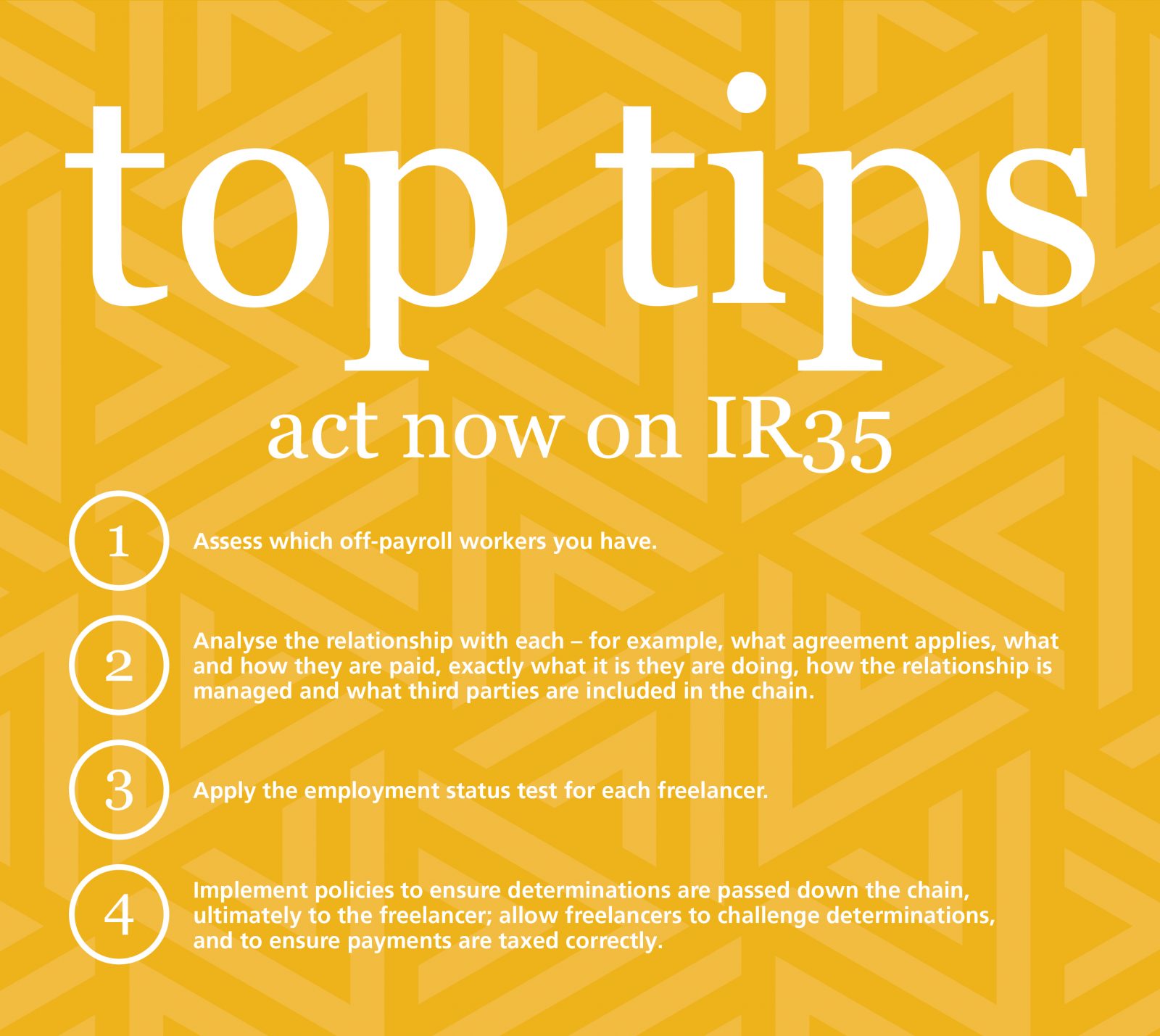IR35 changes – update
30th January, 2020
On the evening of 17 March 2020 the Government announced the decision to delay the implementation of the IR35 changes in the private sector by one year to 6 April 2021.
Click here for more information.
Changes to the IR35 legislation have big implications for businesses and contractors. Paul Scope, Employment Partner at Ward Hadaway, explains all you need to know.
You can check out the first episode of our Laying Down the Law podcast featuring Paul Scope and our friends at MHA Tait Walker and Nigel Wright, explaining all your need to know about the new IR35 rules using the links below:
IR35 legislation originally came into being in the year 2000 and hit contractors working predominantly in the IT, banking and public sectors. It aims to ensure that HMRC collects tax from those people who are essentially ‘employees’ disguised as limited companies to reap tax benefits.
Since then, the legislation has placed the onus on the individual contractor to determine their employment status – but in reality, many contractors either don’t realise or have chosen to ignore the rules.
Changes to the legislation mean that from April, it will be the responsibility of the end-user client – and in some cases employment agencies – to ensure all their contractors are compliant with IR35 legislation. Those business who aren’t compliant with the new rules could face large tax bills and penalties.
Q. How does IR35 affect businesses?
Although the rules have been in place since 2000, responsibility for applying them fell on the intermediary (normally the contractor’s limited company). From April, responsibility for applying the rules falls with the end-user – the contractor’s client– most of whom are less willing to take a risk on the contractor’s tax status. The end-user must determine if the contractor is really a disguised employee. Liability for getting it wrong falls on the end-user if they do not make the determination or apply the rules. Sometimes liability can be passed to another link in the chain (such as an agency) if the fault lies with them.
Q. What impact do you expect this to have on the contractor community?
The impact should not be underestimated. There are an estimated 170,000 contractors engaged by 60,000 end-user clients who may be caught by these new rules.
The off-payroll rules are designed to ensure that a contractor is taxed in the same way as an employee if in reality (applying the appropriate tests) they work like an employee, even if the label applied to them is self-employed. This is because HMRC receive less tax and National Insurance in respect of a self-employed individual than they do for an employee.
Q. How should businesses and contractors test whether they fall within IR35?
This obligation falls on the end-user, the contractor’s client. They have to determine this and then tell the contractor whether they think the contractor is caught by the rules. If there is another link in the chain, such as an agency, the determination is passed down the chain to the individual contractor.
There are two ways to test this. One, take advice from a qualified professional or two, use the Government online tool: https://www.gov.uk/guidance/check-employment-status-for-tax. However, there is scepticism in the freelance world as to whether this tool is weighted towards finding that a contractor is an employee.
Q. What can contractors and businesses that fall within IR35 do to minimise the impact this may have on their business and income?
If a contractor is assessed to be within the off-payroll rules, then the organisation paying the limited company (the end-user or a third party such as an agency) must deduct tax and NI from the sums paid as they would for an employee. That is outside the control of the contractor, although there is a process for the contractor to challenge this determination. This disagreement process involves the end-user considering the challenge and deciding whether their initial determination was correct or not. There is no appeal beyond the end-user client.
A contractor within IR35 will be taxed like an employee but not have any of the employment benefits that come with employment status.
They have four options:
- Accept the position and receive less net income;
- Renegotiate fees if possible, to mitigate the effect;
- Work as an employee to receive less net income but obtain employment benefits;
- Use an umbrella company – although there is a limit as to how beneficial these will be.
Q. Is remaining a sole trader or limited company the best business structure to adopt post IR35 implementation?
Yes if the contractor is genuinely self-employed. If they are caught by IR35 then there has been a determination that they are not genuinely self-employed. They are then left with the options above.
The changes do not apply to small business – broadly speaking a business that has two or more of these features: turnover of £10.2m or less; balance sheet total of £5.1m or less; 50 employees or less.
Q. What are your top tips for businesses, agencies and contractors who think they may be affected by this?
End users, agencies and contractors should act now. Consider the appropriate test to see if the arrangement is caught – there are numerous factors but the main ones are:
- Is there an obligation on the end-user to provide the contractor with work?
- Does the contractor need to do the work personally?
- Does the end-user control the work? That is: when, where, how etc the work is done?
End users and agencies should:

Q. Where can we get help?
We have developed a toolkit to assist with compliance. The Toolkit contains a specimen contract; detailed guidance; step by step guides and flowcharts; details of the factors to take into account for the status determination test; procedures for challenging the determination; and standard letters for the process. Please fill in your details for further information.
To talk to Paul about how Ward Hadaway could help with your People needs, call him on 0330 137 3167 or 07540 556 295 or email paul.scope@wardhadaway.com. Find him on Twitter at @paulscope.

The first of our Laying Down the Law podcasts is coming soon, where Paul teams up with our friends at MHA Tait Walker and Nigel Wright to explain all you need to know about the new IR35 rules. Keep your ears peeled and don’t forgot to subscribe!
Paul recently took part in an IR35 webinar with Nigel Wright. Click here to watch that.